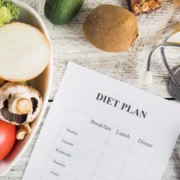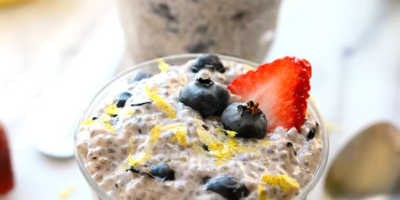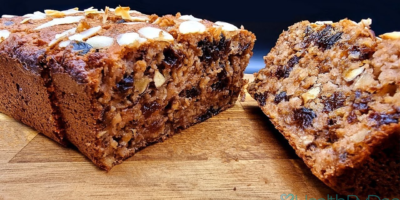Relieving constipation is a common concern that affects many individuals, especially in our fast-paced, often sedentary lives. The discomfort associated with constipation can lead to a range of symptoms such as bloating, irritability, and abdominal tightness, making it crucial to find effective solutions. Incorporating natural constipation remedies into your daily routine can significantly enhance your digestive health. By focusing on high fiber foods, staying hydrated, and engaging in regular exercise for constipation, you can promote better bowel movements and overall well-being. Additionally, adding probiotic foods to your diet can help maintain a balanced gut flora, further aiding in the relief of constipation.
When dealing with the challenge of infrequent bowel movements, many people seek effective strategies to enhance their digestive health. This condition, often referred to as irregular bowel habits or digestive sluggishness, can stem from a variety of lifestyle factors. Understanding the importance of hydration tips for constipation and the role of dietary choices can significantly impact your comfort and health. Emphasizing the consumption of fiber-rich foods and incorporating regular physical activity are essential steps in promoting digestive regularity. Moreover, exploring the benefits of probiotics can lead to a healthier gut and improved overall digestive function.
Effective Natural Remedies to Relieve Constipation
Constipation can be a frustrating experience, but there are several natural remedies that can help alleviate this condition. One of the most popular methods is through dietary adjustments, particularly increasing the intake of high-fiber foods. Foods such as whole grains, fruits, and vegetables can significantly aid in promoting regular bowel movements. Additionally, incorporating natural laxatives like flaxseed or chia seeds into your diet can be beneficial. These foods not only improve digestion but also provide essential nutrients that support overall health.
In addition to dietary changes, hydration plays a crucial role in relieving constipation. Drinking plenty of water is vital, as it helps to soften stool and facilitate easier passage through the intestines. Aim for at least 2.5 to 3 liters of water daily, and consider adding herbal teas that promote digestive health. By combining high fiber intake with adequate hydration, you can create a powerful strategy to combat constipation naturally.
The Importance of High Fiber Foods for Digestive Health
High fiber foods are essential for maintaining a healthy digestive system and preventing constipation. Fiber acts as a bulking agent, which helps to form stool and promotes regular bowel movements. Foods rich in fiber include whole grains like oats and brown rice, legumes such as lentils and chickpeas, and a variety of fruits and vegetables. Incorporating these foods into your daily diet can significantly improve your digestive health and reduce the likelihood of experiencing constipation.
Moreover, not all fibers are created equal. Soluble fiber, found in foods like oats and apples, dissolves in water and can help regulate digestion, while insoluble fiber, found in whole grains and leafy greens, adds bulk to stool. A balanced intake of both types of fiber is crucial for optimal digestive function. To enhance your fiber intake, consider adding a side of steamed broccoli or a handful of almonds to your meals, ensuring that your digestive system stays on track.
Incorporating Exercise to Combat Constipation
Exercise is a vital component in the management of constipation, particularly for those leading a sedentary lifestyle. Physical activity stimulates the muscles in the gastrointestinal tract, promoting bowel movements and improving digestion. Engaging in moderate exercise, such as brisk walking or cycling, for at least 30 minutes a day can significantly reduce constipation symptoms. It’s not just about hitting the gym; even simple activities like gardening or taking the stairs can make a difference.
In addition to aerobic exercises, consider incorporating stretching and yoga into your routine. Certain yoga poses are specifically designed to promote gut health and relieve constipation by massaging the intestines and increasing circulation. By prioritizing regular physical activity, you can create a holistic approach to managing constipation that complements dietary and hydration strategies.
The Role of Probiotic Foods in Digestive Health
Probiotic foods play a significant role in maintaining a healthy gut microbiome, which is essential for regular bowel movements. Foods like yogurt and kefir are rich in beneficial bacteria that help to break down food in the digestive tract. When choosing probiotic-rich options, it’s important to select plain varieties without added sugars to maximize their health benefits. Making homemade yogurt with a probiotic culture can also ensure that you’re consuming a potent source of these beneficial microbes.
Incorporating probiotics into your diet can not only help relieve constipation but also improve overall digestive health. Fermented foods such as sauerkraut, kimchi, and miso are excellent sources of probiotics, offering a variety of flavors and textures to enhance your meals. By adding these foods to your diet, you can support your gut health and establish a robust digestive system that is less prone to constipation.
Hydration Tips for Constipation Relief
Staying adequately hydrated is crucial when it comes to relieving constipation. Water is the most effective fluid for promoting bowel movements, as it helps to soften the stool and makes it easier to pass. Aim to drink at least 2.5 to 3 liters of water daily, and consider incorporating hydrating foods such as cucumbers, oranges, and watermelon into your diet. These foods not only contribute to your overall fluid intake but also provide essential vitamins and minerals that support digestive health.
In addition to plain water, herbal teas can also be beneficial for hydration and digestive wellness. Teas like peppermint or ginger can help soothe the digestive tract and may aid in reducing bloating and discomfort associated with constipation. By prioritizing hydration and making conscious choices about your fluid intake, you can significantly enhance your body’s ability to manage and prevent constipation.
Recognizing Symptoms of Constipation
Understanding the symptoms of constipation is crucial for early intervention and management. Common signs include infrequent bowel movements, difficulty passing stool, and abdominal discomfort. Other symptoms may include headaches, irritability, and feelings of bloating. Recognizing these signs early on can help you take proactive steps to alleviate the discomfort associated with constipation.
If you notice these symptoms, it’s important to assess your diet and lifestyle to identify potential causes. Factors such as inadequate fiber intake, dehydration, or a lack of physical activity can contribute to constipation. By being mindful of these symptoms and their underlying causes, you can implement effective strategies to relieve constipation and promote overall digestive health.
Dietary Adjustments for Constipation Prevention
Making dietary adjustments is one of the most effective ways to prevent constipation. A diet rich in fiber is essential for promoting regular bowel movements and maintaining digestive health. Incorporate high-fiber foods such as whole grains, fruits, and vegetables into every meal. Additionally, consider adding legumes and seeds, which can provide a substantial fiber boost and aid in digestion.
It’s also important to pay attention to your overall diet quality. Reducing the intake of processed foods, which often lack fiber, can further enhance digestive function. Instead, focus on whole, nutrient-dense foods that support bowel regularity. By consciously improving your diet, you can significantly reduce the risk of constipation and promote a healthier digestive system.
Lifestyle Changes to Alleviate Constipation
In addition to dietary improvements, implementing lifestyle changes can greatly alleviate constipation. Regular physical activity is essential, as it stimulates the intestines and encourages bowel movement. Aim for at least 30 minutes of moderate exercise most days of the week. Even simple activities like walking or stretching can have a positive impact on your digestive health.
Additionally, establishing a routine for bowel movements can be beneficial. Try to set aside time each day to relax and listen to your body’s signals. When you feel the urge to go, don’t delay. This practice, combined with proper hydration and a balanced diet, can create a comprehensive approach to preventing and relieving constipation.
The Impact of Medications on Constipation
Certain medications can contribute to constipation, making it important to be aware of their impact on your digestive system. Common culprits include pain medications, antidepressants, and certain antihistamines. If you suspect that your prescription might be affecting your bowel habits, discuss this with your healthcare provider. They may be able to adjust your medication or suggest alternatives that are less likely to cause constipation.
In addition to prescription medications, over-the-counter remedies should be used with caution. While they can provide temporary relief, long-term reliance on laxatives can disrupt your body’s natural bowel function. Always consult with a healthcare professional before starting any new medications, especially if you are experiencing chronic constipation. By being proactive about your medication management, you can minimize the risk of constipation and maintain a healthy digestive system.
Frequently Asked Questions
What are some effective natural constipation remedies to relieve constipation?
To relieve constipation naturally, consider increasing your fiber intake with high-fiber foods like legumes, whole grains, and fresh fruits and vegetables. Staying hydrated is crucial, so aim for 2.5-3 liters of water daily. Regular exercise can also stimulate bowel movements, making it a key natural remedy for constipation.
How can high fiber foods help relieve constipation?
High fiber foods are essential for relieving constipation as they add bulk to your stool, making it easier to pass. Incorporating foods like broccoli, Brussels sprouts, and flaxseed into your diet can significantly improve bowel regularity and help alleviate constipation symptoms.
What type of exercise for constipation is most beneficial?
Engaging in daily physical activity, such as walking for at least 30 minutes, is beneficial for relieving constipation. Exercise stimulates bowel function and can help prevent constipation by promoting regular bowel movements.
How do probiotic foods contribute to relieving constipation?
Probiotic foods, such as plain kefir and yogurt, can improve gut health and promote regular bowel movements, making them effective for relieving constipation. These foods help balance your gut bacteria and enhance digestive functions.
What hydration tips for constipation should I follow?
To relieve constipation, prioritize hydration by drinking at least 2.5-3 liters of water daily. Avoid excessive caffeine and alcohol, as they can dehydrate you. Incorporating hydrating foods, such as cucumbers and watermelon, can also support your hydration goals.
| Key Points | Details |
|---|---|
| Definition of Constipation | A common issue usually characterized by infrequent bowel movements and difficulty in passing stools. |
| Symptoms | Headaches, irritability, indigestion, abdominal tightness, and bloating. |
| Causes | – Insufficient fiber and fluid intake – Sedentary lifestyle – Pregnancy – Aging – Medications – Hypothyroidism |
| Prevention and Relief | – Drink 2.5-3 liters of water daily. – Engage in at least 30 minutes of physical activity daily. – Include fiber-rich foods in your diet. |
| Recommended Foods | – Jerusalem artichoke – Broccoli – Zucchini – Brussels sprouts – Flaxseed – Dry legumes – Artichoke – Almonds |
| Probiotic Foods | Incorporate plain kefir and yogurt fermented with probiotic cultures. |
| Consulting a Doctor | Avoid long-term use of medications or enemas without professional guidance. |
Summary
To relieve constipation effectively, it is crucial to adopt a balanced approach that includes proper hydration, increased physical activity, and a diet rich in fiber. By understanding the causes and symptoms of constipation, individuals can implement simple lifestyle changes that can significantly improve their bowel health. Regular consumption of recommended foods, staying active, and seeking medical advice when necessary are key strategies in managing and preventing constipation.















Comments